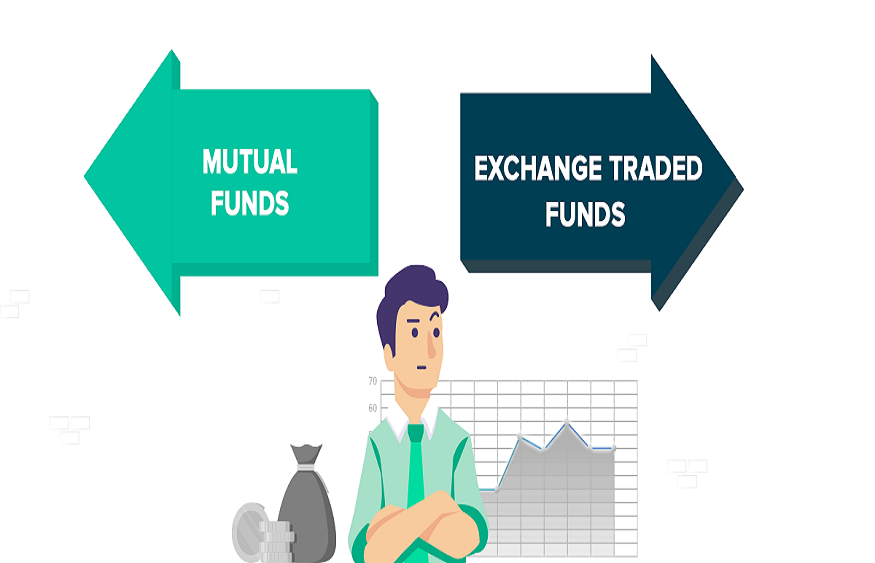As the financial markets continue to expand and evolve, investors have many options for investing their money. Two popular investment vehicles in Singapore are Exchange-Traded Funds (ETFs) and mutual funds. Both offer diversification, professional management, and easy accessibility for investors. However, there are significant differences between these two types of funds that investors should understand before making investment decisions. This article will discuss the critical differences between ETFs and mutual funds in Singapore.
Structure
One of the main differences between ETFs and mutual funds lies in their structure.
ETFs are a type of investment fund traded on stock exchanges, just like individual stocks. Therefore, investors can buy or sell shares of an ETF at any time during trading hours, making them highly liquid investments. ETFs are typically passively managed, meaning they track a specific market index or sector rather than having an active fund manager making investment decisions.
On the other hand, mutual funds are not traded on stock exchanges and can only be bought or sold at the end of the trading day. It makes them less liquid than ETFs. Furthermore, mutual funds are managed by a professional fund manager who makes investment decisions based on the fund’s objectives and strategies.
Investors should also note that ETFs have a fixed number of shares, while mutual funds can issue new shares to meet demand from investors. Therefore, the price of an ETF is determined by supply and demand in the market, while a mutual fund’s price is determined by its net asset value (NAV).
Fees and expenses
Another significant difference between ETFs and mutual funds is their fees and expenses. Generally, ETFs have lower expense ratios than mutual funds because of their passive management style. Expense ratios are the annual fees charged by investment funds to cover operating costs, such as management fees, administrative expenses, and marketing expenses. As ETFs track an index rather than actively managed by a fund manager, their expense ratios are typically lower.
On the other hand, mutual funds have higher expense ratios due to their active management. Fund managers conduct extensive research and analysis to select investments they believe will outperform the market. It requires more resources and manpower, increasing investor fees and expenses.
It is essential to note that both ETFs and mutual funds may have additional fees, such as trading commissions and redemption fees. However, as ETFs are traded on stock exchanges, investors can avoid these extra fees by buying or selling shares through low-cost brokers.
Transparency
Transparency is another crucial difference between ETFs and mutual funds. As ETFs are traded on stock exchanges, their holdings must be disclosed daily, giving investors full transparency of the fund’s portfolio. Investors can easily track the performance of their ETFs by checking the underlying index’s performance.
On the other hand, mutual funds are only required to disclose their holdings quarterly. Therefore, investors may not clearly understand the fund’s investments at any given time. As actively managed funds, mutual funds do not track an index, making it challenging for investors to benchmark their performance.
It is worth noting that there are transparent, actively managed ETFs, but these are still relatively new in Singapore and may have higher expense ratios than traditional ETFs.
Tax efficiency
ETFs and mutual funds also differ in their tax efficiency. ETFs are usually more tax-efficient than mutual funds because of their passive management style. As they track an index, there is less buying and selling of securities within the fund, resulting in lower capital gains taxes for investors.
On the other hand, mutual funds’ active management may result in more frequent buying and selling of securities, leading to higher capital gains taxes for investors. Additionally, the distribution of dividends from mutual funds may also be subject to tax.
Investors should also consider the tax residency of the fund and how it may affect their taxes. ETFs domiciled in Singapore may be subject to lower tax rates than those in other countries. Mutual funds, on the other hand, may have varying tax implications depending on where they are domiciled.
Investment minimums
Another significant difference between ETFs and mutual funds is their investment minimums. ETFs have much lower investment minimums than mutual funds, making them more accessible to retail investors. For example, an investor can buy one share of an ETF for as little as $50.
On the other hand, mutual funds often have higher investment minimums, sometimes ranging in the thousands of dollars. It makes investing in mutual funds challenging for retail investors with smaller sums of money.
Some mutual funds may also have a minimum initial investment and subsequent investments. Therefore, an investor may need to commit a more significant sum initially and continuously invest a set amount regularly to maintain their investment in the fund.

